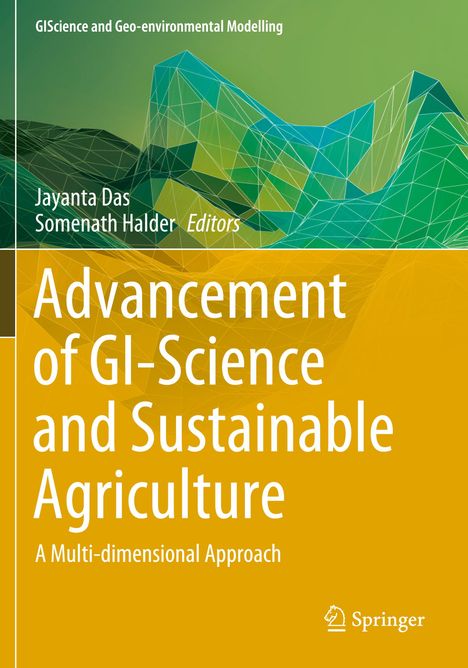Advancement of GI-Science and Sustainable Agriculture, Kartoniert / Broschiert
Advancement of GI-Science and Sustainable Agriculture
- A Multi-dimensional Approach
(soweit verfügbar beim Lieferanten)
- Herausgeber:
- Jayanta Das, Somenath Halder
- Verlag:
- Springer, 09/2024
- Einband:
- Kartoniert / Broschiert, Paperback
- Sprache:
- Englisch
- ISBN-13:
- 9783031368271
- Artikelnummer:
- 11986010
- Umfang:
- 372 Seiten
- Gewicht:
- 699 g
- Maße:
- 254 x 178 mm
- Stärke:
- 21 mm
- Erscheinungstermin:
- 30.9.2024
- Hinweis
-
Achtung: Artikel ist nicht in deutscher Sprache!
Weitere Ausgaben von Advancement of GI-Science and Sustainable Agriculture |
Preis |
|---|
Klappentext
Part1.Sustainable Agriculture and Applied GIScience.- Nexus between GIScience and Sustainable Agriculture.- Geographic Information Science in Sake of Better Sustainable Agro Management.- Integration of IT-OT in Agriculture towards Sustainable and Competitive Farming.- Combination of Remote Sensing Indices for Agricultural Drought Monitoring using DEMATEL Method.- Recent Trends of Meteorological Variables and its impact on agriculture in Northwest Bangladesh.- Application of RS-GIS Based Multi Criteria Decision Making Model (MCDM) on Site Suitability Analysis for Potato Cultivation in Jalpaiguri District, West Bengal, India.- Comparative Assessment of Projected Suitability of Finger Millet Crops in Tamil Nadu and Parambikulam Aliyar Basin using ECOCROP Model. A Geospatial Approach.- Agricultural Site Suitability Modeling using Geospatial Techniques for Sustainable Development in Koch Bihar District, West Bengal, India.- Part2. Agro-Ecology, Population and GIScience.- Value Chain Analysis of Sericulture in Bangladesh. Exploring Pro-poor Employment Potential.- Assessment of Potential Land Suitability for Tea Cultivation in Aizawl District, Mizoram: A Multi-Criteria Decision Making and Geospatial Approach.- Declining Groundwater Level and its Impact on Irrigation and Agro-Production.- Impact of Shifting Cultivation and Changing Land Use on the Hydrology of Iril Watershed, Manipur.- Impact of Overpopulation on Food Crisis and Fertilizer Usage.- Monitoring of Landslide and its Impact on Agriculture in Kottiyoor Panchayath, Kannur District, Kerala.- Agricultural Land Use Change and its Impact on the Farmers Livelihood Assets of Maldah District, West Bengal, India.- GIS Based Road Network Accessibility Analysis and its impact on Agricultural Development using Graph Theory. A Block Level Study of theHill Areas of Darjeeling District, West Bengal.- A Story of Urban Expansion with Waste Water Usage in Agriculture. A Case Study of East Kolkata Wetlands.


